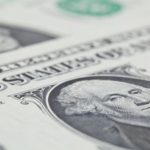
At 04:45 ET (09:45 GMT), the Dollar Index, which tracks the greenback against a basket of six other currencies, traded 0.1% higher to 106.465.
The dollar has been in demand Wednesday, boosted by its safe-haven status amid political turmoil in both South Korea and Europe as well as ongoing conflicts in the Middle East and Ukraine.
“A lame duck government in Germany and potentially France too today if a no-confidence vote is successful, plus this Korean news, will only add to confidence that the relatively high rates and liquidity make the dollar the most compelling currency in which to park cash balances right now,” said analysts at ING, in a note.
Turning back to macro news, all eyes will be on the ADP private payrolls report for November later in the session, particularly with the widely watched monthly jobs report due for release on Friday.
The ISM services activity release is also on the agenda, as well as a speech from Fed Chair Jerome Powell in Washington.
“There is the risk that US macro data softens a little and can drag the dollar a little softer, but taking defensive positions in something like the Japanese yen or Swiss franc can be expensive,” ING added.
Market-implied odds of a quarter-point rate reduction on Dec. 18 last stood at 75%, according to CME’s FedWatch Tool.
In Europe, EUR/USD dropped 0.1% to 1.0501, with the single currency struggling for support as the French political crisis comes to a head.
French lawmakers are preparing to vote on no-confidence motions later in the day that are all but certain to topple the government, with opposition parties seemingly unable to support Prime Minister Michel Barnier’s recent budget aimed at curbing a hefty budget deficit.
Additionally, data released earlier Wednesday showed that business activity across the eurozone fell sharply last month as the bloc’s dominant services sector joined the manufacturing sector in contraction territory.
HCOB’s final composite Purchasing Managers’ Index for the currency union, compiled by S&P Global and seen as a good gauge of overall economic health, sank to 48.3 in November from October’s 50.0.
“Be it European political risk, weak activity, the threat of trade wars or energy prices creeping higher (EU gas inventories are starting to come under pressure) there are many reasons to be underweight in the euro,” ING said.
GBP/USD traded 0.1% higher to 1.2677, helped by UK activity data remaining in expansion territory.
Bank of England Governor Andrew Bailey reiterated in an interview published on Wednesday that gradual cuts in interest rates are likely over the next year, adding that the process of falling inflation is well embedded.
“There is still a distance to travel because although inflation came down to target over the summer, we’ve been saying for a while that … we were probably going to go back a bit above target,” Bailey said.
In Asia, USD/KRW stabilized at 1,414.26, after surging as high as 1,444.05 won in overnight trade – its highest level since November 2022.
South Korean President Yoon Suk-Yeol declared martial law on Tuesday in an effort to counter “anti-state forces” among his political opponents. However, the move faced immediate backlash, including parliamentary rejection and public protests, leading him to revoke the measure within hours.
The won also pared initial losses as South Korea’s central bank held an emergency meeting to stabilize the domestic market.
USD/JPY climbed 0.7% to 150.68, while USD/CNY slipped 0.2% to 7.2730, with the Chinese currency bouncing from the previous day’s low of 7.3145, the weakest since November of last year, helped by a stronger-than-expected central bank midpoint fixing.
AUD/USD slumped 1% to 0.6421, falling to its lowest level since early August after GDP data showed Australia’s economy grew less than expected in the third quarter, sparking increased bets that the Reserve Bank will cut interest rates early in 2025.
To read the full article, Click Here

